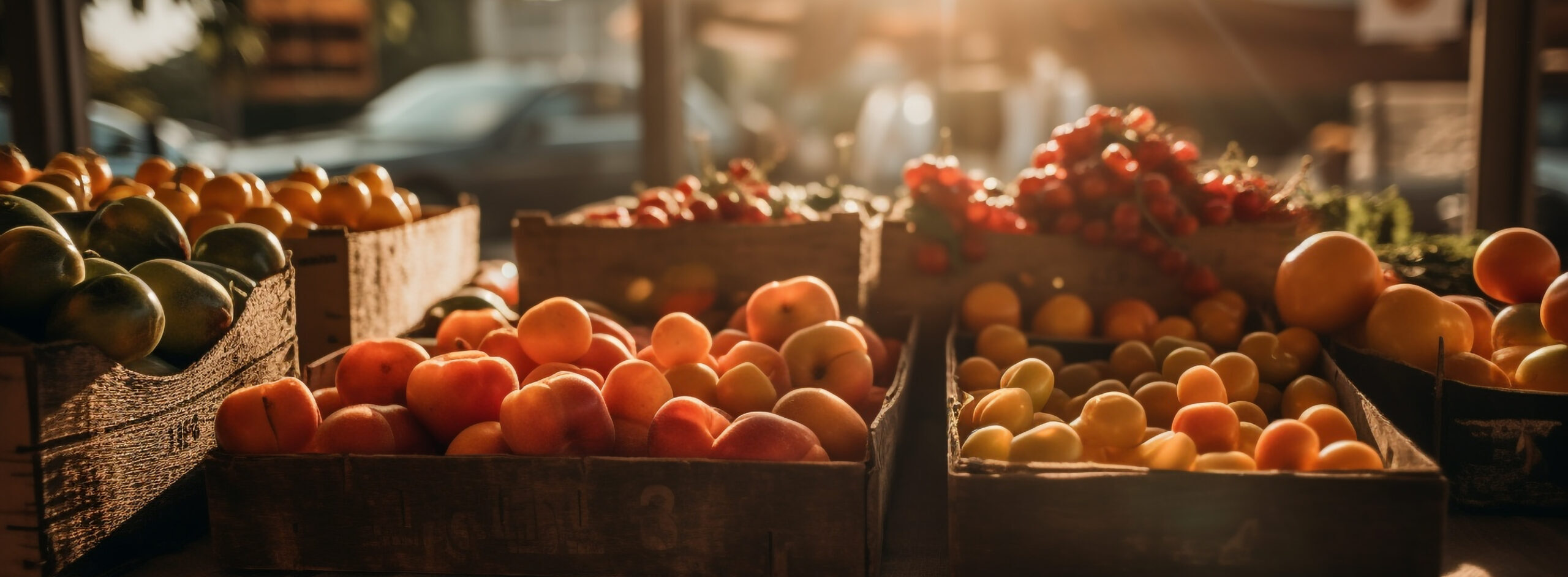Food Wholesalers: Why Sourcing Directly from Producers is More Beneficial
The food supply chain is a complex network, involving multiple players, from producers and wholesalers to retailers and end consumers. Traditionally, food wholesalers have played a pivotal role in this chain. They act as intermediaries that connect producers with retailers and other buyers. While wholesalers offer convenience and bulk purchasing options, the emergence of digital platforms that allow buyers to source directly from producers is changing the landscape of food sourcing. In many cases, this direct connection is more advantageous for both buyers and producers.

What Are Food Wholesalers?
Food wholesalers act as the middlemen in the food industry. They buy large quantities of products from producers or manufacturers and sell them in smaller quantities to retailers, food service companies, and sometimes directly to consumers. Wholesalers provide various services, including product aggregation, warehousing, and distribution. They make it easier for retailers to stock a diverse range of products without dealing directly with numerous individual producers.
While wholesalers have long been a vital part of the food supply chain, their role comes with certain limitations and costs that can impact both producers and buyers.
The Drawbacks of Traditional Food Wholesaling
- Higher Costs for Buyers One of the main downsides of using food wholesalers is the cost. Since wholesalers serve as intermediaries, they mark up the price of goods to cover their expenses and profit margins. This means that by the time products reach retailers or end consumers, they are often sold at a higher price than if the buyers had sourced directly from producers.
- Reduced Profit Margins for Producers For producers, especially small-scale farmers and food artisans, working with wholesalers can mean sacrificing a portion of their profits. Wholesalers typically negotiate prices to buy products at a lower rate, which can limit the revenue that producers receive for their goods.
- Lack of Transparency and Traceability When buyers source food products through wholesalers, there is often a lack of transparency regarding the origin and quality of the products. This can make it difficult for retailers and consumers to understand the conditions under which the food was produced, including farming practices, animal welfare, and labor conditions. In an era where consumers are increasingly concerned about food transparency, this lack of traceability can be a significant drawback.
- Limited Product Variety Wholesalers typically deal in large quantities of standardized products to meet the demands of their customers. As a result, they may not offer the diverse range of products that buyers could find when sourcing directly from a variety of producers. This can limit the options available to retailers and consumers who are looking for unique, locally produced, or specialty food items.
The Benefits of Sourcing Directly from Producers
With the rise of digital platforms and changing consumer preferences, more businesses and consumers are turning to direct sourcing models. Platforms like FoodConnect facilitate this direct connection between buyers and producers, offering a range of benefits:
- Fairer Compensation for Producers By eliminating the middleman, buyers can purchase products at more competitive prices. Producers can offer their goods directly to buyers without the markup added by wholesalers. This cost-saving can be especially beneficial for businesses such as restaurants, grocers, and food service companies looking to optimize their budgets while sourcing high-quality products.
- Fairer Compensation for Producers Direct sourcing empowers producers to set their prices and retain a larger share of the revenue. By bypassing wholesalers, producers can avoid the steep discounts often required when selling in bulk. This fairer compensation helps support small-scale farmers, food artisans, and local producers, enabling them to sustain and grow their operations.
- Enhanced Transparency When buyers source directly from producers, they gain greater insight into the origin of their food. They can learn about the producers’ farming practices, production methods, and commitment to sustainability. This transparency is crucial for businesses that want to provide their customers with high-quality, ethically produced food.
- Access to a Diverse Range of Products Direct sourcing allows buyers to access a broader variety of products. Those include unique and specialty items that may not be available through traditional wholesalers. Whether it’s organic produce, artisanal cheeses, or small-batch preserves, platforms like FoodConnect connect buyers with a diverse network of producers offering a wide range of high-quality goods. This variety enables retailers, restaurants, and food service companies to differentiate themselves in the market by offering exclusive products to their customers.
- Building Stronger Relationships Direct sourcing fosters closer relationships between buyers and producers. This connection allows buyers to collaborate with producers, provide feedback, and develop long-term partnerships. In turn, producers can better understand the needs and preferences of their buyers. As a result, they can tailor their offerings and improve product quality. These relationships can lead to more reliable supply chains and mutual growth.
How Platforms like FoodConnect Facilitate Direct Sourcing
Directly connecting buyers and producers can be logistically challenging without the right infrastructure. This is where platforms like FoodConnect come into play. FoodConnect streamlines the process by offering tools and services such as:
- Advanced Search and Filtering: Buyers can easily find producers that meet their specific criteria, such as location, product type, and farming practices.
- Logistics and Shipping Solutions: FoodConnect simplifies the logistics of direct sourcing by providing integrated storage and shipping services, ensuring that products reach buyers efficiently and in optimal condition.
- Secure Payment Systems: The platform offers secure payment options, providing peace of mind for both buyers and producers.
- Real-Time Inventory Management: Producers can manage their inventory in real-time, allowing buyers to see product availability and place orders with confidence.
Conclusion
While food wholesalers are a key part of the food supply chain, sourcing directly from producers offers numerous advantages. By using platforms like FoodConnect, buyers enjoy cost savings, transparency, and access to a diverse range of high-quality products. All while supporting producers through fairer compensation. This direct sourcing model benefits individual businesses and consumers, while also contributing to a more sustainable and resilient food system.
If you’d like to dive deeper into how FoodConnect can help your business connect directly with quality food producers, click here!
